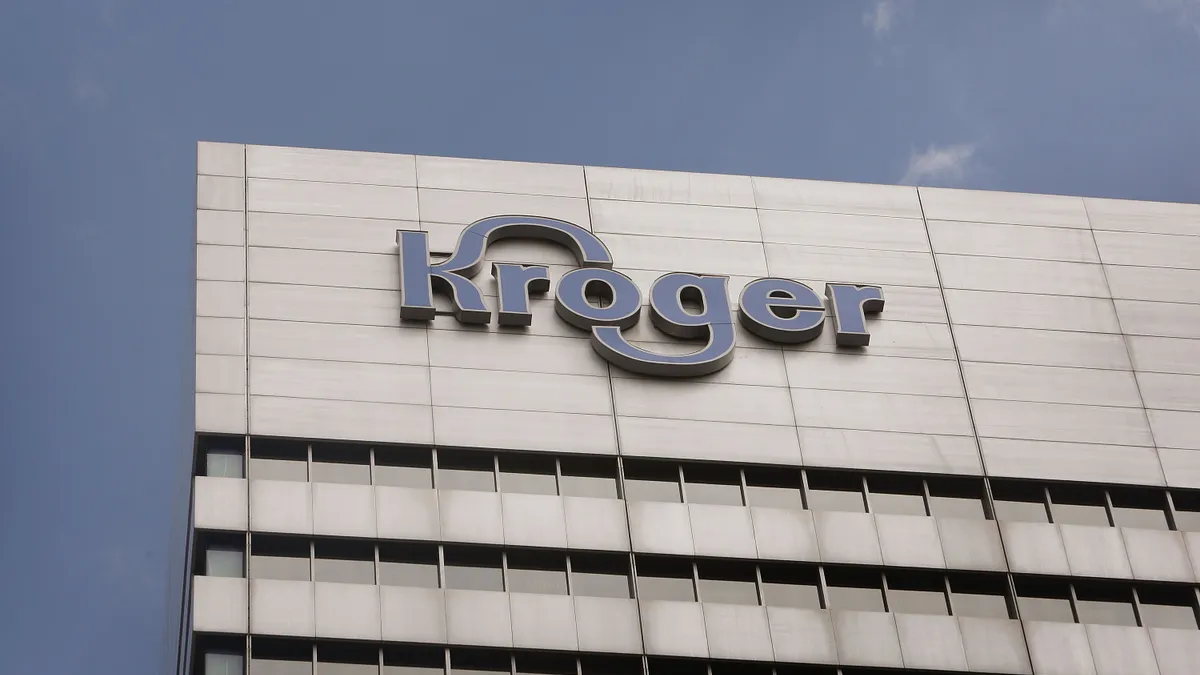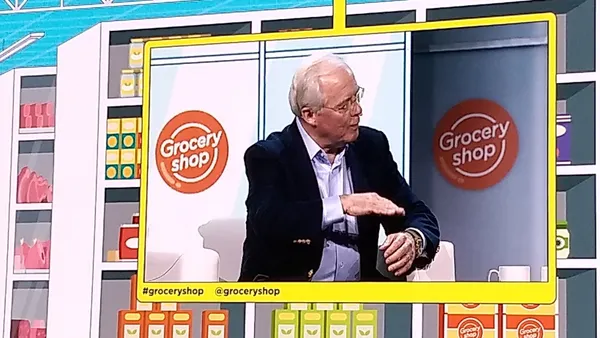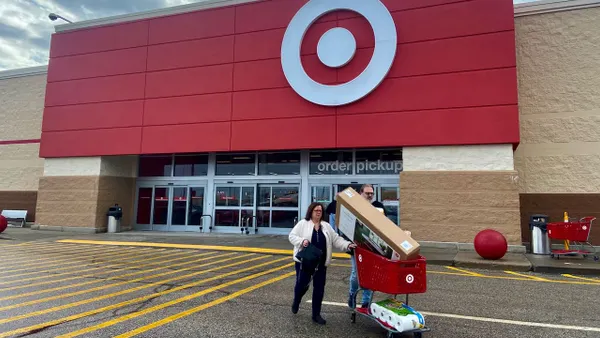Dive Brief:
- Kroger claimed in a recent legal filing that C&S Wholesale Grocers is not entitled to the $125 million merger termination fee it is seeking to collect because it breached its contract with the grocer during the battle with regulators over its proposed combination with Albertsons.
- Kroger alleges that C&S disparaged the divestiture deal to regulators, secretly talked with Albertsons employees about the merger plan, failed to make disclosures to Kroger and didn’t follow contractually required steps to prepare to run divested stores, according to papers the grocer filed Monday in response to a lawsuit filed earlier this year by C&S.
- This marks the latest legal salvo by Kroger as it battles lawsuits from C&S and Albertsons a few months after its proposed merger fell through.
Dive Insight:
Kroger alleges that C&S, which was set to acquire hundreds of stores from Kroger and Albertsons if their merger got approved, didn’t engage in good faith with the grocer during the regulatory review process and subsequent litigation by federal and state regulators.
As the companies worked to overcome regulators’ concerns about the deal, C&S secretly communicated with Albertsons about the merger strategy and then failed to disclose these exchanges to Kroger, Kroger alleges.
Kroger said it was “shocked” when an Albertsons executive disclosed C&S’s communications with the company during the trial over the Federal Trade Commission’s efforts to block the merger.
“Nothing excuses C&S’s failure to disclose to Kroger during trial preparation its highly relevant communications with Albertsons, which were so relevant that some of them were ultimately cited in the Washington Court’s decision enjoining the Merger,” Kroger said in the filing.
Kroger also claims that C&S tainted regulators’ perception of the divestiture deal.
“Critiquing and diminishing the divestiture package that C&S knew was critical to securing regulatory approval for the Merger was a flagrant and material breach of C&S’s contractual obligations, and C&S’s conduct predictably caused the regulators to view C&S as an inadequate divestiture buyer regardless of the scope of the divestiture package,” Kroger said its filing.
Kroger claims C&S’s parent company “repeatedly refused to provide basic financial information” to certain landlords who requested guarantees for the leases for the assets set for divestiture. Kroger also says C&S didn’t apply for thousands of licenses and permits necessary to operate the divested stores, claiming that by September 2024, C&S had submitted applications for only a third of the 18,000 licenses it would need.
A spokesperson for C&S disputed Kroger’s claims.
“Kroger’s response to C&S’s complaint only highlights that it has no good faith defense to its breach of its agreement with C&S that required Kroger to pay $125 million as a termination fee,” the spokesperson said in an emailed statement. “C&S looks forward to prevailing in court and holding Kroger to its unequivocal contractual promise to C&S.”
C&S became part of the Kroger-Albertsons merger proposal when the wholesaler agreed to acquire stores and assets the grocers had planned to divest to win regulatory approval for their combination. After the initial divestiture deal faced criticism and scrutiny by state and federal regulators, C&S, Kroger and Albertsons agreed to an enhanced divestiture plan, under which C&S would have bought 579 stores and additional non-store assets such as infrastructure and access to the Signature and O Organics private brands.
After judges in state and federal courts blocked the merger at the end of last year, Kroger terminated the agreement with C&S, according to legal filings. Earlier this year, C&S sued Kroger over its failure to pay the wholesaler the $125 million termination fee the two companies had agreed upon as part of the divestiture plan. Kroger claims C&S cannot substantiate its allegations that Kroger breached its contract with the wholesaler.
Kroger’s battle with C&S comes as the grocer also fights a lawsuit from Albertsons, which says it was denied its own $600 million termination fee and claims Kroger breached the merger contract between the two companies after experiencing “buyer’s remorse.”
Kroger has also accused Albertsons of souring the deal’s success, alleging that Albertsons secretly worked to undermine Kroger’s strategy to secure regulatory clearance for their proposed merger.














